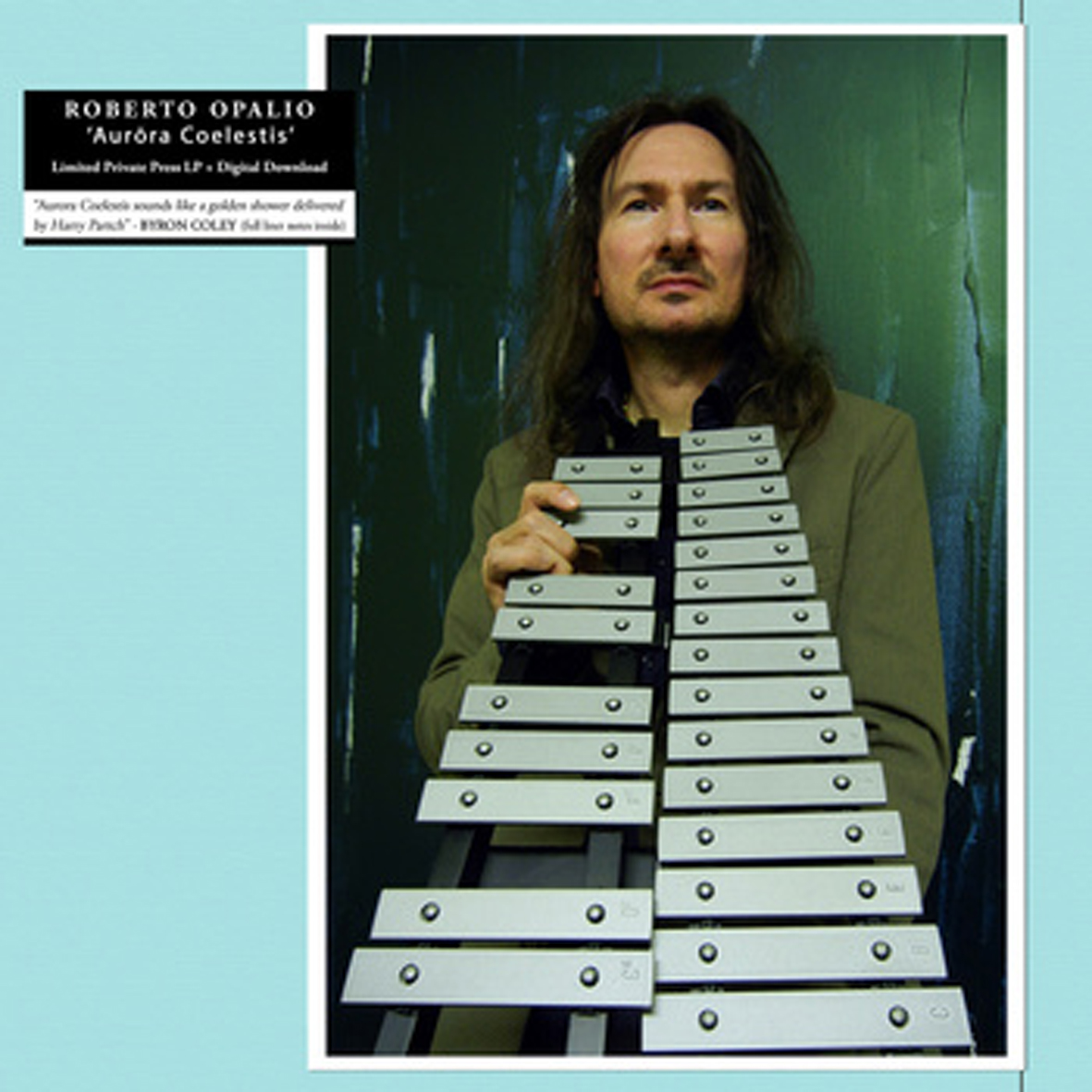 Roberto Opalio's latest solo opus is an intriguing companion piece to My Cat is an Alien's recent Abstract Expressionism for the Ears, achieving its own uniquely altered state in a much more spontaneous, stripped-down, and (comparatively) brief fashion. Although it also contains a shorter piece built around Roberto's processed voice, the clear raison d'être for Aurora Coelestis is the 30-minute title piece, a shimmering, dream-like tour de force birthed from perhaps the least likely of sources: a glockenspiel.  Aurora is certainly a more modest effort than anything that MCIAA has been up to lately, but it is unquestionably its own strange and unique entity with its own pleasantly warped reality.
Roberto Opalio's latest solo opus is an intriguing companion piece to My Cat is an Alien's recent Abstract Expressionism for the Ears, achieving its own uniquely altered state in a much more spontaneous, stripped-down, and (comparatively) brief fashion. Although it also contains a shorter piece built around Roberto's processed voice, the clear raison d'être for Aurora Coelestis is the 30-minute title piece, a shimmering, dream-like tour de force birthed from perhaps the least likely of sources: a glockenspiel.  Aurora is certainly a more modest effort than anything that MCIAA has been up to lately, but it is unquestionably its own strange and unique entity with its own pleasantly warped reality.
The idea of a deeply psychedelic solo glockenspiel album is certainly one that courts incredulity, but the instrument lends itself to the task at hand surprisingly well.  In fact, an album like this could have probably only be made with such an instrument, though it sometimes sounds an awful lot like a vibraphone in this instance (though higher in pitch).  Of course, Opalio does not only use a glockenspiel to weave his spell: the sounds are all filtered through his self-designed "alientronics," which adds a lovely blurring and softening effect to the rippling notes.  For the most part, "Aurora Coelestis" is a quavering, bleary thrum, but avoids ever becoming static or fully settled.  The overall effect is a subtle yet beguiling one, as it is not so much a plunge into a new lysergic plane of consciousness as it is a gentle (but significant) tweaking of reality as it currently exists.  Like ambient music, it does not particularly demand my direct attention, but it adds a shimmering patina of quivering surreality to my immediate surroundings whether I give it that attention or not.  That said, it also holds up quite well to deeper, more focused listening, resembling an accumulating mass of uncomfortably harmonizing whines from a field full of otherworldly crickets.  I cannot think of any other albums that provide that particular experience, so I will chalk that up as a definite success.
The 7-minute "Hic et Nunc" closes the album with a slightly different feel, as Roberto's disquietingly eerie and shifting vocal drones and swooping electronics evoke the feeling of strange lights floating above a remote forest.  In most other respects, however, it reprises the success of its predecessor, eschewing melody or rhythm in favor of achieving a unsettling, flickering, and drifting reverie.  If it has a fault, it is merely that it is comparatively short, so its spell does not quite have enough time to fully take hold.  Otherwise, it is every bit is unique and delightfully weird as its companion piece.  Admittedly, it took Aurora a bit longer to grow on me than the last few MCIAA albums (owing to its less overtly ambitious scope and relative quiet), but it is ultimately a singular, subtly absorbing, small-scale triumph that truly sounds like no one else.
 
Read More

